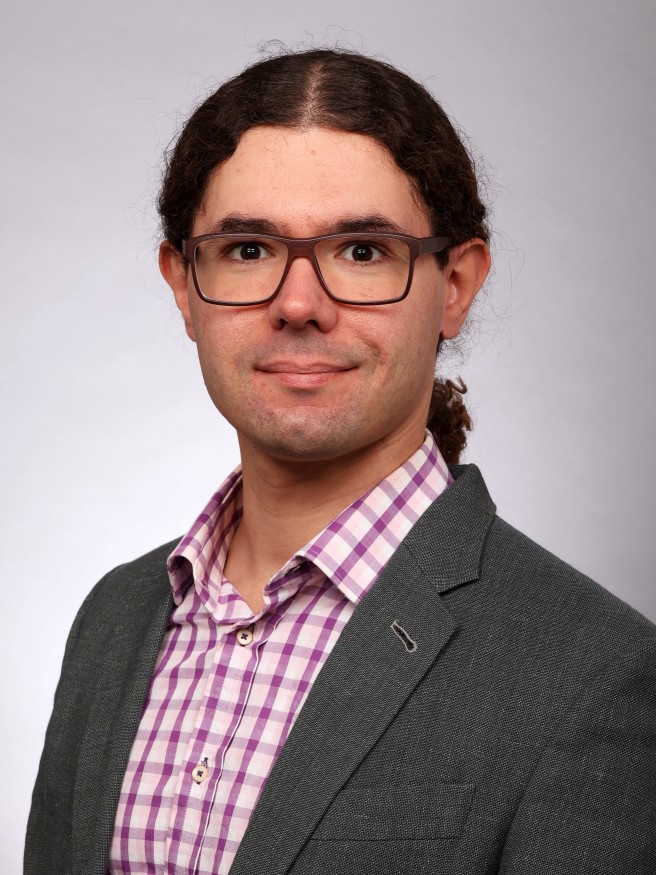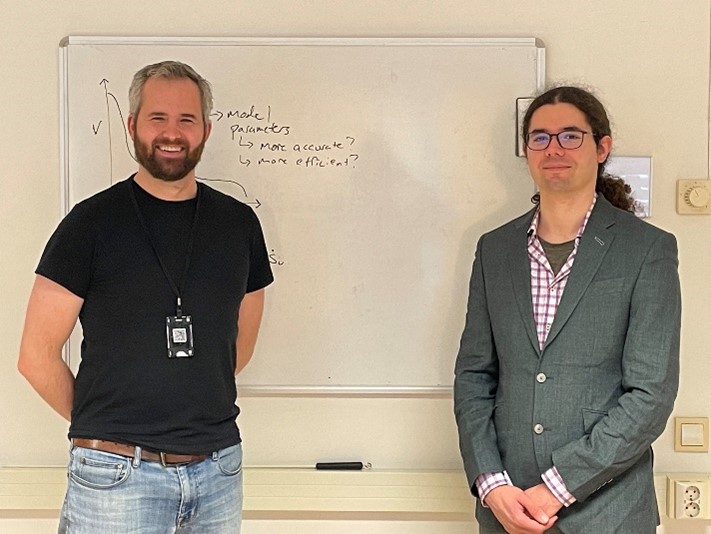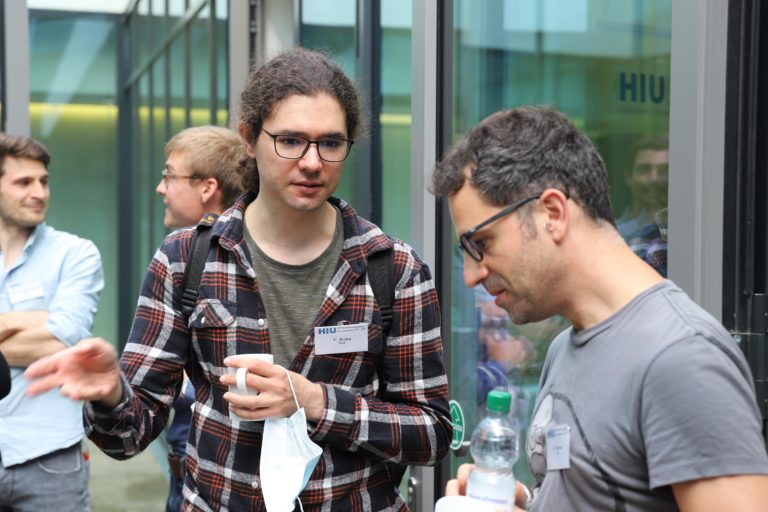Problem Solver, Modeller, Programmer, AI Expert

Welcome! I plan to exhibit interactive snippets of my research here, but for now you can find my master CV below.

Welcome! I plan to exhibit interactive snippets of my research here, but for now you can find my master CV below.
At the first international battery engineering conference after the Covid lockdowns, I met Masaki Adachi, then PhD candidate at the University of Oxford, and (as of 2025) a research group leader at Toyota in Japan. His work on Bayesian Optimisation and especially Bayesian Model Selection revolutionised the way we set up and validate battery models for material characterisation and operation prediction. I contributed my experience in the practical application of related Bayesian approaches to battery modelling tasks, which he incorporated in his work to bridge his groundbreaking algorithm BASQ to practical application with SOBER. I wrote a clear interface and documentation for the usage of these two algorithms, and wrote their inclusion in the battery model characterisation and selection software PyBOP.

At the flagship Norwegian research institute SINTEF, the research group around Simon Clark works on what I would call an "international battery materials science glossary", the ontology BattINFO. It is a concerted effort within the broader EU battery research context to harmonise the experimental data from characterisation measurements. This is the first step towards utilising AI to find patterns in battery materials science, i.e., it is the basis to even formulate a training dataset for LLM approaches with scientific accuracy. My contribution is a proof-of-concept of how to sustainably generate research data that complies to the high standards of BattINFO and the FAIR principles in general. I formulated a complete and automatisable workflow from battery measurement data to battery materials characterisation using the research data management and database software Kadi4Mat, incorporating the expertise of various experts along the way.
My personal project exploring the requirements for battery materials characterisation and showcasing automation solutions for that. As part of two of my scientific publications and subject to a third one, it is not under active development anymore and serves as their supplementary information now. The materials characterisation aspect is superseded by PyBOP and SOBER, to which I contributed the lessons I learned with EP-BOLFI and its relevant components. The automation aspect still stands on its own, but is now part of the larger EU project DigiBatt, and work that contributes to automation efforts continues there.
With the framework of Bayesian optimisation, I complement the effectiveness of neural network solutions with quality control. While the flexibility of neural networks allows them to learn pretty much anything, hallucinations are challenging to predict and prevent ahead of time. This may be fine for chatbots, but not for safety-critical engineering problems. Thus, I apply the same learning paradigm from neural networks with a different methodology: gaussian processes, or in general, stochastic processes. These implement the field of stochastics, which is the mathematical study of randomness and uncertainty. I studied and contributed to their application, which is initially more computationally intensive, but rewards us with clear predictions for the extent of random effects.

During my PhD at the German Aerospace Centre, I presented my research at various international conferences. I learned how to present my work comprehensibly to a broad spectrum of audiences, and how to understand their equally broad spectrum of research: surface engineering, quantum chemistry, mechanical engineering, IT, AI, and fluid dynamics, to name a few.
As I worked with chemists, physicists, mathmaticians, mechanical engineers, computer scientists, and industry experts to solve current research questions in battery engineering, I learned how to work within, lead, and coordinate a team comprising various backgrounds.
Deploying any software solution that is user-friendly involves a stack of technologies that powers it. When I deploy collaboration platforms, electronic laboratory notebooks, or database systems in general, I always study the tech stack from top to bottom to be able to adapt it to user requirements.
Battery Materials Researcher
German Aerospace Centre - Institute of Engineering Thermodynamics
2019-2025
M. Sc. Mathmatics (very good, 1.4), minor subject Physics (~ B. Sc.)
University of Stuttgart
2013-2018
Abitur (very good, 1.4)
Otto-Hahn-Gymnasium Ludwigsburg
2004-2012